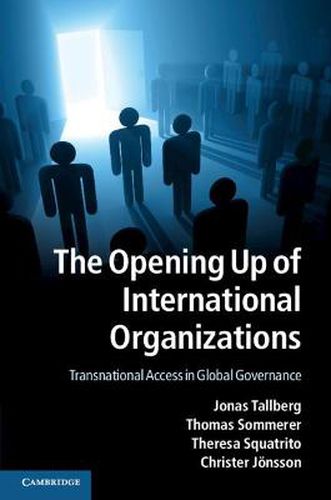Readings Newsletter
Become a Readings Member to make your shopping experience even easier.
Sign in or sign up for free!
You’re not far away from qualifying for FREE standard shipping within Australia
You’ve qualified for FREE standard shipping within Australia
The cart is loading…






Once the exclusive preserve of member states, international organizations have become increasingly open in recent decades. Now virtually all international organizations at some level involve NGOs, business actors and scientific experts in policy-making. This book offers the first systematic and comprehensive analysis of this development. Combining statistical analysis and in-depth case studies, it maps and explains the openness of international organizations across issue areas, policy functions and world regions from 1950 to 2010. Addressing the question of where, how and why international organizations offer transnational actors access to global policy-making, this book has implications for critical issues in world politics. When do states share authority with private actors? What drives the design of international organizations? How do activists and businesses influence global politics? Is civil society involvement a solution to democratic deficits in global governance?
$9.00 standard shipping within Australia
FREE standard shipping within Australia for orders over $100.00
Express & International shipping calculated at checkout
Once the exclusive preserve of member states, international organizations have become increasingly open in recent decades. Now virtually all international organizations at some level involve NGOs, business actors and scientific experts in policy-making. This book offers the first systematic and comprehensive analysis of this development. Combining statistical analysis and in-depth case studies, it maps and explains the openness of international organizations across issue areas, policy functions and world regions from 1950 to 2010. Addressing the question of where, how and why international organizations offer transnational actors access to global policy-making, this book has implications for critical issues in world politics. When do states share authority with private actors? What drives the design of international organizations? How do activists and businesses influence global politics? Is civil society involvement a solution to democratic deficits in global governance?